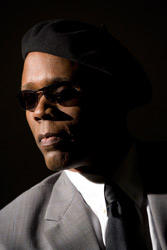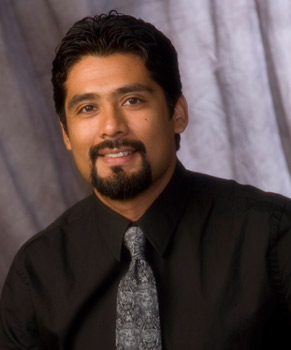All Events

WEIGHTS Lynn Manning
MCC THEATER
In 1978, Lynn Manning was shot in the face and blinded by a stranger in a Hollywood bar. Through the use of dramatic story telling peppered with poetry and humor, Lynn recreates that fateful night, then takes the audience on an emotional roller-coaster ride through his life growing up impoverished in South-central Los Angeles. You will hear gut wrenching tales of child neglect and sexual abuse, comedic reenactment of learning to use a white cane, tender descriptions of first love 'in the absence of light,' and thought provoking revelations within this 'metamorphosis from black man to blind man' in America. Co-sponsored by the African diasporic Cultural Resource Center, the Black Studies Department, and the Disabled Students Program.
Photo by Christopher Voelker and Voelker Studios

An Evening of TurbanGrooves with Live Punjabi Hip Hop and Funk Music by BlackMahal featuring Ustad Lal Singh Bhatti
MCC THEATER
You’ve heard urban groove music, but chances are that 'turban groove' is a new sound to you. That’s what the unique San Francisco-based band BlackMahal calls its blend of hip-hop, funk and Punjabi music. The nine-piece band is fronted by the grey-bearded singer and dhol drummer Ustad Lal Singh Bhatti, known as the godfather of Punjabi-American music. He has performed for nearly every US president since Gerald Ford. Event will conclude with a Q & A session with the band.
The band plays rollicking, 'Their sound is perhaps unlike anything else out there today... It’s awesome!' – Rolling Stone Magazine.
Get 20% off of general admission if you purchase your ticket by Monday, October 10th or with purchase of the whole concert season. Contact the A.S Ticket Office at 805-893-2064 from Monday to Thursday 10 am – 5 pm and Friday, 10 am – 4 pm. No extra charge for telephone orders. Limited seating.
After a Decade of 'War on Terror' How Have Human Rights and Civil Liberties Fared? Ahilan Arulanantham, Asli Ü. Bâli and Lisa Hajjar
MCC THEATER
Since the 9/11 terrorist attacks, there have been unprecedented changes in US government policies toward human rights and civil liberties. This panel will highlight the sweeping use of immigration detention and deportations of Muslims, FBI entrapment of Muslims and other activists, the significance of the official authorization of a policy of torture and extra-judicial assassination, and the failure of the country to pursue any modicum of accountability for those responsible for state crimes. Ahilan Arulanantham is the ACLU/Southern California deputy legal director. In 2010, the American Immigration Lawyers Association awarded him the Arthur C. Helton Human Rights Award for his innovative litigation and its enormous benefits for the rights and dignity of vulnerable non-citizens. Asli Ü. Bâli is assistant professor of international law at UCLA Law School and specializes in the laws of war, nuclear proliferation, and Middle East politics. After 9/11, she engaged in extensive pro bono work relating to immigration, civil liberties, and international human rights. Lisa Hajjar is associate professor of Sociology at UCSB. Her research and writing focus on law and legality, war and conflict, human rights, and torture. In 2010, she went to Guantánamo three times to cover military commission trials for Middle East Report, where she serves on the editorial committee. Co-sponsored by the American Civil Rights Union-Santa Barbara Chapter; A.S. Human Rights Board; the Center for Middle East Studies; the Center for New Racial Studies, University of California, Santa Barbara; and the Sociology Department.

Punished: Policing the Lives of Black and Latino Boys Víctor Ríos
MCC THEATER
In this compelling sociological narrative, Ríos analyzes how punitive juvenile crime policies and criminalization affect the everyday lives of Black and Latino urban youth. He deftly balances analysis with vivid anecdotes about uninterested educators, struggling parents, police brutality, and gang victimization. Ríos terms this criminalization 'the youth control complex' and explains how it systematically deprives boys of their dignity and their ability to succeed at school or in the job market. Once they accumulate 'negative credentials,' the young men are subject to increased surveillance--and are consequently more likely to end up in prison. Ríos makes a compelling argument that better financed social programs and positive reinforcement could make all the difference. Víctor Ríos is associate professor of Sociology at UC Santa Barbara. His research interests include urban ethnography, policing, criminal justice, and youth culture. In 2010 Ríos received the Chancellor’s Award for Excellence in Mentoring Undergraduate Research, The Margaret T. Getman Service to Students Award, the Office of Residential Life Outstanding Faculty Award, and the 'Young Scholar Award' from the American Society of Criminology Division on People of Color. He is also the recipient of the 2011-12 Harold J. Plous Award, one of the university's most prestigious faculty honors given annually to an assistant professor from the humanities, social sciences, or natural sciences who has shown exceptional achievement in research, teaching, and service to the university.
